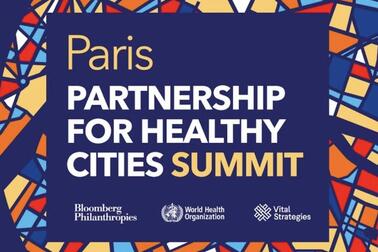The fourth summary of the Helsinki City Strategy’s successes and challenges to date has been completed. A Place of Growth – Helsinki City Strategy 2021–2025 has been the starting point for preparing the budgets and action plans. The implementation of the strategy is monitored regularly as part of the monitoring of finances and operations.

For example, the summary of the strategy’s progress in the first quarter of 2023 lists the closure of the Hanasaari power plant as a success and the impact of the cost level on housing construction as a challenge.
Of the 13 focus areas included in the city strategy, successes have been achieved in the following:
Ambitious climate objectives and nature conservation
- The Carbon-neutral Helsinki 2030 Action Plan. Achieving the objectives requires promoting the plan systematically and identifying the most effective measures. The Hanasaari power plant was closed on 1 April, reducing Helsinki’s total emissions by up to 20%.
- The publication of the public LUMO Watch monitoring tool under the Biodiversity Action Plan (LUMO programme) in February, and the active measures.
Art and culture as enablers of a good life
- The awarding of this year’s grants to promote the cultural and physical activities of the elderly (a total of €2 million for 54 applicants).
A smoothly functioning and beautiful city
- The Esplanadi streets’ pedestrian street experiment and other summer street experiments will be conducted this summer.
- The city designed and implemented fixed electric scooter parking places in the city centre to reduce the associated problems.
Improving the health and well-being of Helsinki residents
- The implementation of the action plan on homelessness in 2019–2022. The homelessness of single people was halved, and that of families and couples decreased by 38%.
- The city has implemented research-based methods for developing emotional and interaction skills in all schools.
- The city opened a well-being website for seniors.
Responsible finances as the basis for sustainable growth
- City divisions and enterprises have continued comprehensive productivity-promoting measures. Both the deficit and responsible operational economy targets were achieved last year. The city’s economy is currently in balance.
- The city started work to improve the overall coordination of investments.
International workers and businesses find Helsinki appealing
- The new Immigration Unit started its operations on 1 March with the aim to develop services promoting work-, study- and entrepreneurship-based immigration, for example.
The challenges faced have included the following:
Helsinki is an attractive employer
- The number of city employees recommending the city as an employer decreased. The number of city employees considering changing employers increased. The number of applicants also decreased.
A smoothly functioning and beautiful city
- The economic situation affecting construction is so difficult that, according to the current forecast, the city’s goal of starting the construction of 8,000 dwellings will not be achieved this year.
- Also, the 2% annual increase in the urban renewal areas’ housing stock is not expected to be achieved.
Improving the health and well-being of Helsinki residents
- The treatment and service backlog accumulated during the COVID-19 pandemic has not been cleared.
Responsible finances as the basis for sustainable growth
- The financing model for reforming the Social Services, Health Care and Rescue Services Division and the record-high cost and investment levels challenge the achievement of the financial targets.
Data and digitalisation help run a smart city
- A large number of isolated digital development projects with the available resources may hinder the successful implementation of future critical services and operating model reforms and the promotion of data analytics and knowledge-based management.
The implementation of the City Strategy will be stepped up, and its progress will be monitored in four cross-administrative programme groups under the City Executive Group and by the indicators described on the City of Helsinki website (in Finnish).
Read more


